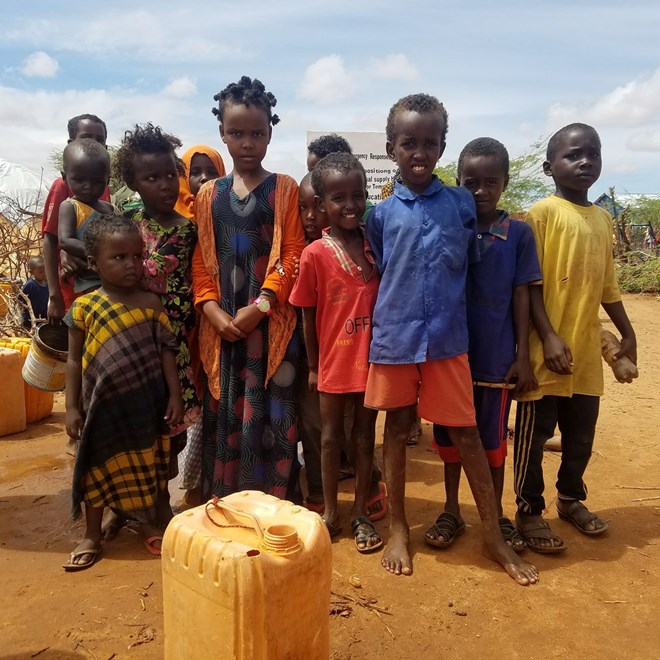
Friday September 1, 2017
By Tim Grieve 
On my first day in Dollow, I was at the Cholera Treatment Centre which is a converted tin-roofed shed half the size of a football pitch.
The eerie silence was in stark contrast to the usual hub and noise of what used to be a marketplace. At least ten patients are admitted daily.
Children five years and younger, malnourished and listless, were lying on modified beds which had holes the size of a saucer opening over a small bucket. At their bedside was a pail for the uncontrollable passing of excreta and vomit. Some children were comforted by their mothers. Others, weak and tired from constant vomiting, were alone.
Open defecation was a concern at each of the sites I visited. Good hygiene and sanitation is critical to preventing the spread of faecal-transmitted diseases such as cholera. Open defecation makes the spread of cholera a growing threat, especially for children who are more susceptible to infection because they are malnourished, an unfortunate reality for about 1.4 million Somali children.
After performing ablutions with a chlorine solution to disinfect both hands and feet, I was ushered between a row of beds neatly partitioned with orange tarpaulin into makeshift rooms. I met the resident doctor who appeared calm and in control of the influx of patients. He adhered to a strict decontamination process; it was imposed on all patients coming in and out.
Men, children and the elderly huddled together under trees seeking a reprieve from the searing heat.
A mother’s role in the midst of hunger and thirst
When children are hungry or thirsty, it’s their mother they turn to first. The drought means mothers are having to say, “no” to their children, “no water, no food” because there isn’t any.
At the reception centre UNICEF provides clean drinking water, and there’s a daily distribution of high energy biscuits from the World Food Programme, as well as food from local businesses.
Talks about cholera prevention are well attended. Mothers sat attentive, eager to learn how to use the aqua tabs and chlorine tablets to purify water. The threat posed by open defecation was emphasized.
Encouraging the use of toilets remains a challenge. Despite having toilets, people continue to practice open defecation, which is particularly worrying ahead of the rainy season when water sources could be further contaminated.
At the arrival centre staff make sure clean water remains a priority, to prevent rising numbers of cholera and other water borne diseases.
On my final day in Dollow, I went to Qansaxeley displacement camp where about 800 families had arrived in the last two weeks. Some of them described sleeping in the open air with barely any food or water.
Determined to protect their children, they had left their homes fleeing from the threat of malnutrition, starvation and physical danger. They were disheartened to settle in a camp only to face the same threats. I saw mothers who had just arrived pleading in desperation for help.
Beyond medical attention, what families want when they arrive is water, food and shelter. Food and shelter have been provided, but as the camp expands to accommodate new arrivals, more is needed. Families also need sanitation and hygiene facilities. These necessities, such as toilets and garbage collection, often go unnoticed, but they help prevent disease in crowded camps. Yet they are lacking in some areas.
As the rainy season approaches, fears mount of new cholera cases, yet I am hopeful that as sanitation and hygiene promotion efforts continue, more resources will be available to meet the growing demand.
Tim Grieve is UNICEF’S Senior Advisor, Water, Sanitation and Hygiene. He leads UNICEF’s WASH in Emergencies team in New York. An engineer and public health specialist by trade, and a child-rights advocate at heart, Tim has managed the emergency WASH response in some of the world’s biggest disasters over the last two decades. He has also managed the WASH teams in countries with many challenges to accessing water and sanitation – including conflicts and natural disasters.